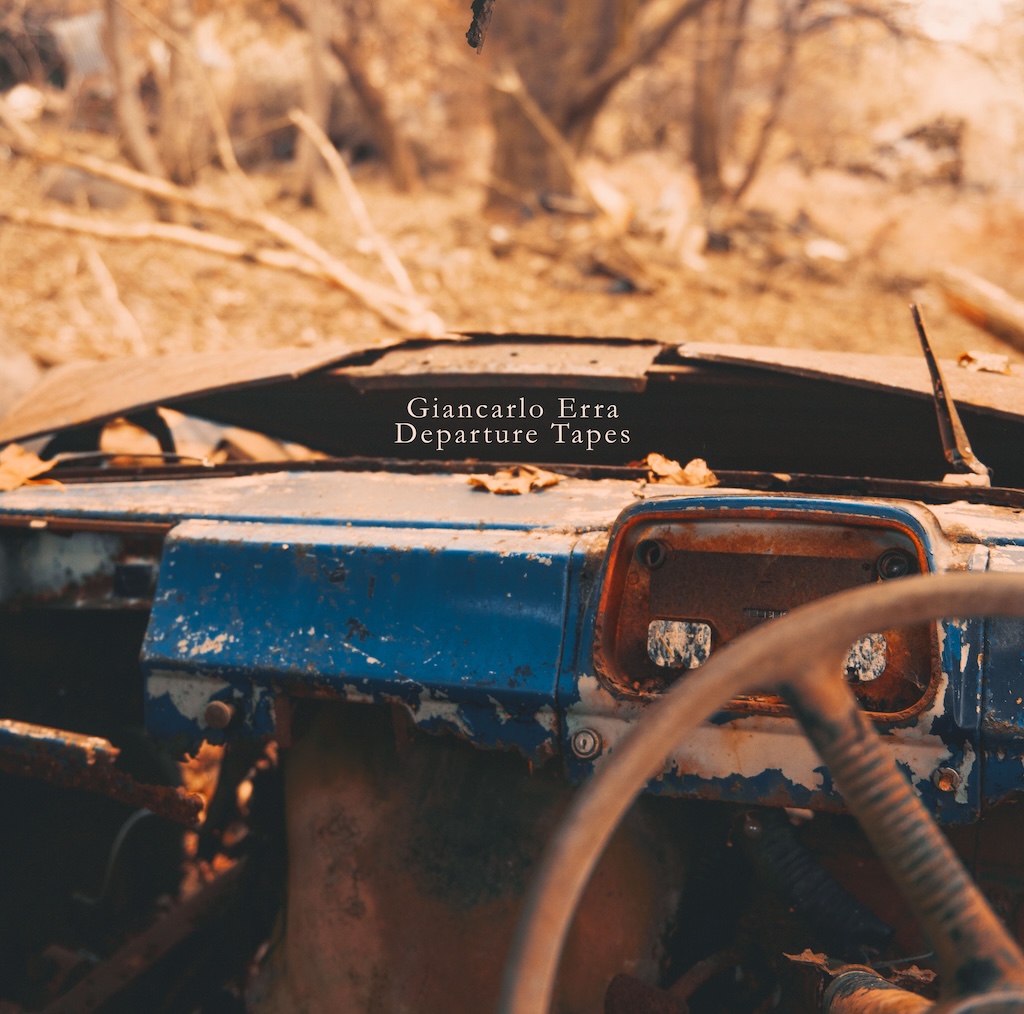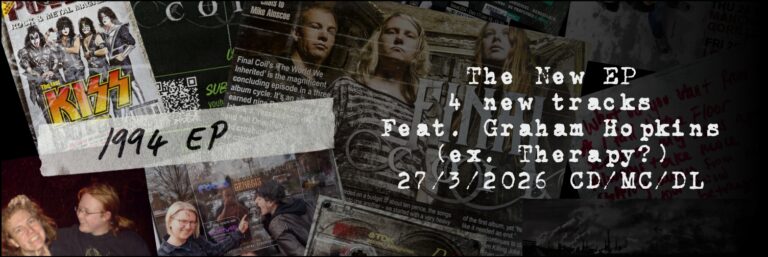
Departure Tapes is the new album from Nosound mainman Giancarlo Erra. A six-track work, written while Giancarlo was travelling between the UK and Italy, Departure Tapes details the loss of his father. Despite a difficult relationship from the age of fourteen, Giancarlo found himself thrust into a situation where he had to care for a man he hardly knew, a situation that enabled a closer relationship between the two than either imagined possible. The resultant album is a dark, experimental, and emotionally honest exploration of Giancarlo’s feelings throughout the period, and while it is not easy listening, there’s a raw beauty here that is impossible to ignore. Packaged in a digipack, the album also comes with a DVD featuring both high-resolution stereo and 5.1 mixes, which make the experience all the more immersive. This review covers the 5.1 mix.
The album opens with the eerie drone of Dawn Tape. From the start, the surround sound mix is pristine. Different layers emerge through the speakers, with a lone piano appearing from the front, while more ambient elements drift from the rears. Subtle crackles recall the warmth of well-worn vinyl, reminding the listener that even accidental sounds can become a part of the fabric of a song, and the overall effect is both strangely timeless and deeply immersive. The music itself is both haunting and mercurial. Much is based on the repletion and augmentation employed by art rock bands such as Swans and Sonic Youth, with Giancarlo slowly weaving together a tapestry of sounds that stir the senses. It makes for a beautifully enigmatic opening to the album and it leads into the far shorter Previous Tape. A gently rippling piece of music that seems lost in its own haze, Previous Tape touches on the post-rock melancholy of Mogwai circa CODY and, like Mogwai, the trick here is to offer up a gorgeous piece of music that evokes a unique response in each listener. Close your eyes and you’ll find life, love, heartbreak and despair according to your emotional state at the time, and Giancarlo wisely keeps the piece short to avoid excessive introspection in his listeners. The similarly brief 169th Tape, which sits comfortably beneath the three-minute mark, sees gently stirring strings recorded in an eerie, creaking building. A subtle segue, it brings the listener to the lengthy ambient of Unwound Tape, another track that makes fantastic use of the surround sound set up to utterly envelope the listener. With carefully paced electronic percussion imitating a heartbeat and achingly beautiful drones, the track draws on influences as diverse as Pink Floyd, Mike Oldfield, Mogwai and The Orb, and you can’t help but find yourself drifting on the mellifluous layers of sound that Erra employs.
The second half of the album comprises just two lengthy tracks. The first, the epic Departure Tape, opens with an aria. It is a hauntingly beautiful start, only for the vocals to be slowly eclipsed by shimmering layers of noise. Dense, and threatening, it evokes the clouding of the senses as grief washes over an individual and Giancarlo only barely contains it, reasserting control via the lingering, echoing chords of the piano. Later, as clouds threaten once again, the pace of the piano quickens as Elis Marteinsson’s screeching strings suggest a final, frantic loss of control – as draining as it is cathartic – leading to a climax almost unbearably riven with emotion. It is arguably one of the most remarkable portrayals of love and loss put on record, and the surround mix does full justice to the complex arrangement Giancarlo employed in its creation. The album concludes with A Blues For My Father, a gentle, ambient piece that seems to float at a central point between the speakers. With the undulating tones of an organ in the front and subtly scratchy strings in the rears, the piece radiates a sense of calm that leaves the listener unprepared for an aching solo in the final third. A gorgeous act of creation drawn from terrible heartache, it brings the album to a close, ushering the listener out of Giancarlo’s dreamscape and gently closing the door behind them.
Grief is universal, but the ability to channel grief into something that offers the hope of creativity amidst feelings of despair is something both rare and special. There’s never a sense that the music contained within Departure Tapes is intended to depress or impart a sense of grief. Rather, it is open ended enough that the listener can comfortably allow their own emotions to influence the impression it makes, drawing on their own experiences and, where necessary, finding a sense of catharsis in Giancarlo’s wonderfully imaginative soundscapes. Best heard in its surround sound format, Departure Tapes is one of those records that is likely to appeal to a relatively small audience, but for those who do find it’s charms, it will resonate for years to come. 8.5/10




Amazing work! Original and moving! Growing up more and more every listening.